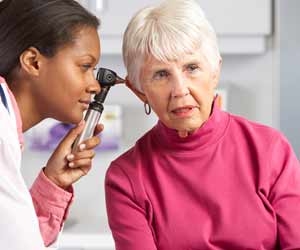Audiologist Careers
What do you hear right now? The tapping of your keyboard? Music in the background? The hustle and bustle of traffic? Your noisy co-worker? A barking pet? Whatever you hear, you can thank your ears.
Hearing is one of your five senses. Your ears are responsible for capturing and interpreting sounds, but they also affect other things in your body. Without your ears working properly you can suffer from hearing problems, balance disorders, vertigo, infections, communication issues, dizziness, and other associated disorders. Ear issues are unfortunate, but if you are faced with any of these ear related issues, you need to call an audiologist.

Audiologists are ear specialists who examined, diagnose, and treat hearing and balance problems on a daily basis. The ear is a delicate and complex part of the human anatomy. Audiologists dedicate their career to learning about the parts of the ear and the disorders that can affect it. It’s a very specialize healthcare role that is in demand.
Your ears have three parts – the external, middle, and inner portions. Sound funnels through the pinna into the external auditory canal. It then hits the eardrum, where tiny bones vibrate. These vibrations are detected by the cochlea and transmitted to the brain. The canals near the cochlea also help you balance and position your body. This all happens in a very tiny space inside a delicate and complex organ.
The ear is prone to many problems. Earaches, otitis, swimmer’s ear, ear infections, ruptured eardrums, ear wax blockages, Meniere’s disease, vertigo, and long term hearing loss are just a few. It’s important to take care of your ears and catch any problems early. If you have hearing or balance problems, an audiologist can help.
Audiologists work with patients of all ages. During the average workday, an audiologist may clean ear canals, fit hearing aids, evaluate hearing, diagnose tinnitus, place cochlear implants, or monitor a patient’s progress. Audiologists work with audiometers, computers, and medical devices to accomplish their ear-focused jobs.
The term audiologist was first termed in 1946. Since then audiology has developed into a mainstream profession. To become an audiologist, you need a strong background in science, anatomy and physiology, acoustics, neurology, sign language, counseling, and balance disorders.
For entry level audiologist jobs, you need to earn a Doctoral of Audiology degree. There are only about 70 programs accredited by the Council on Academic Accreditation in the US. It takes about four years to complete.
Most audiologists also earn a Certificate of Clinical Competence in Audiology from the American Speech Language Hearing Association or the American Board of Audiology credentials them. Certification and licensure varies depending on which state they want to practice.
As the population booms and the baby boomers age, audiology is growing too. Currently there are 13,000 practicing audiologists in the US. The BLS expects this number to grow by 34% by 2022. This is a big opportunity for people aspiring to work in this rewarding, lucrative, and low-stress healthcare niche.
Audiologists can typically find work at healthcare facilities, hospitals, physician offices, audiology clinics, retirement homes, or schools. These ear experts can expect to make $33 per hour or $69,000 per year.
Hearing is a delicate sense. You often don’t appreciate it until you lose it. Luckily, audiologists are available to help people who have ear problems. Audiology is a cool career that is growing rapidly. Are you going to become an audiologist?
Quick Facts About Audiologist Careers
Job Title: Audiologists
Office: Healthcare facilities
Description: Examine, diagnose, and treat ear related problems
Certifications/Education: Degree in Audiology
Necessary Skills: Knowledge of the ear, Professional bedside manner
Potential Employers: Healthcare facilities
Pay: $33 per hour or $69,000 per year


 Teach English in Asia
Teach English in Asia  Cruise Ship Jobs
Cruise Ship Jobs  Alaska Fishing Industry Jobs
Alaska Fishing Industry Jobs  Sharing Economy / Gig Economy
Sharing Economy / Gig Economy